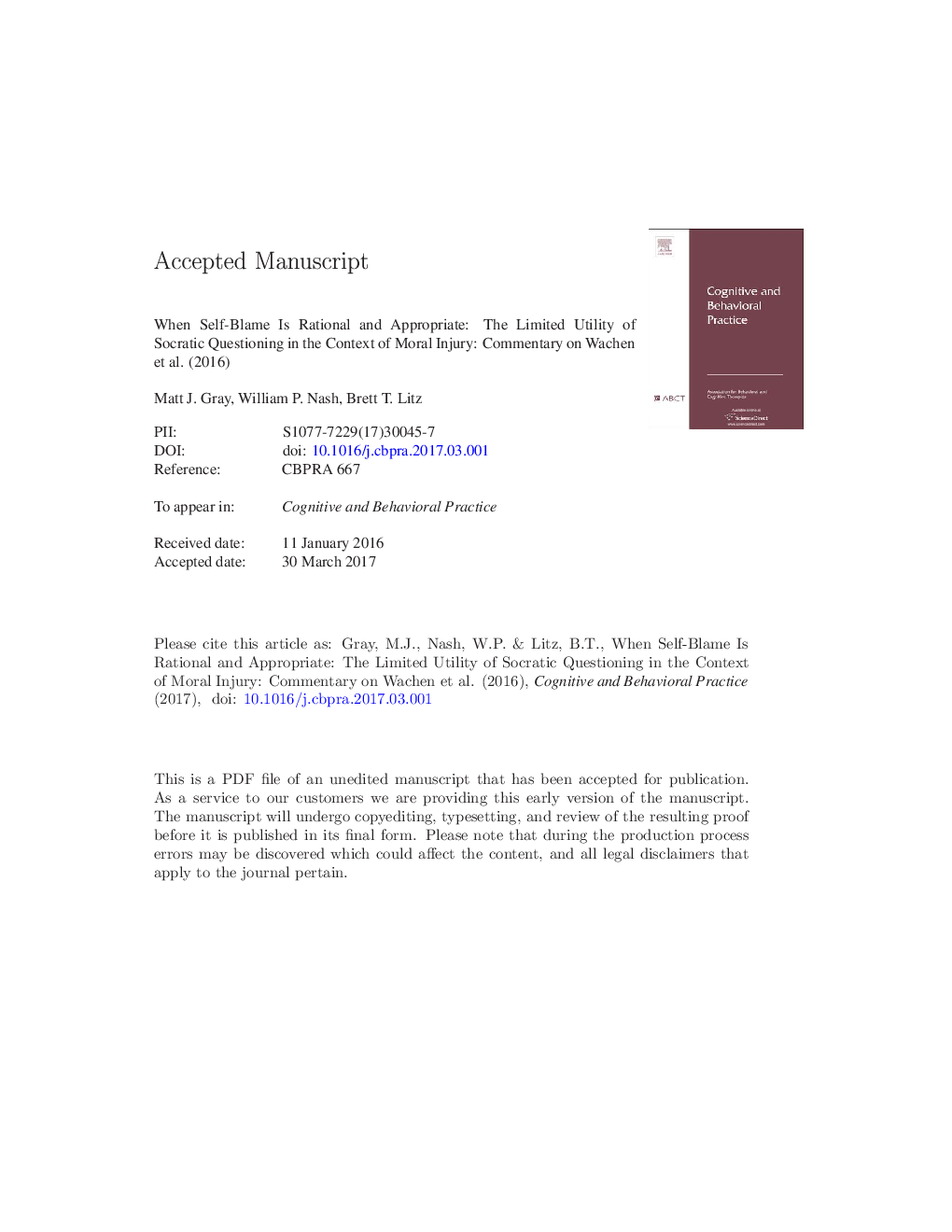| Article ID | Journal | Published Year | Pages | File Type |
|---|---|---|---|---|
| 5038549 | Cognitive and Behavioral Practice | 2017 | 16 Pages |
Abstract
In this commentary, we argue that a generally sound therapeutic technique-Socratic questioning-is ill-suited to address a common variant of combat-related emotional and psychological distress. Specifically, moral injury is a term used to describe a syndrome of shame, self-handicapping, anger, and demoralization that occurs when deeply held beliefs and expectations about moral and ethical conduct are transgressed. Importantly, moral injury can and often does result from instances of intentional perpetration. We contend that challenging the accuracy of self-blame in such cases is conceptually problematic and potentially harmful. Such an approach is based on a questionable premise-i.e., that self-blame and resulting guilt are inherently illogical or inaccurate. Though this is often the case, it is not invariably so. We briefly describe an alternate approach-Adaptive Disclosure-that allows for accurate and legitimate self-blame when warranted but also promotes the possibilities of self-forgiveness, compassion, and moral reparation.
Keywords
Related Topics
Health Sciences
Medicine and Dentistry
Psychiatry and Mental Health
Authors
Matt J. Gray, William P. Nash, Brett T. Litz,
